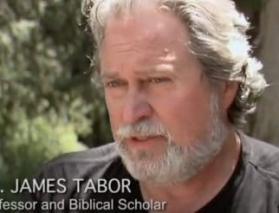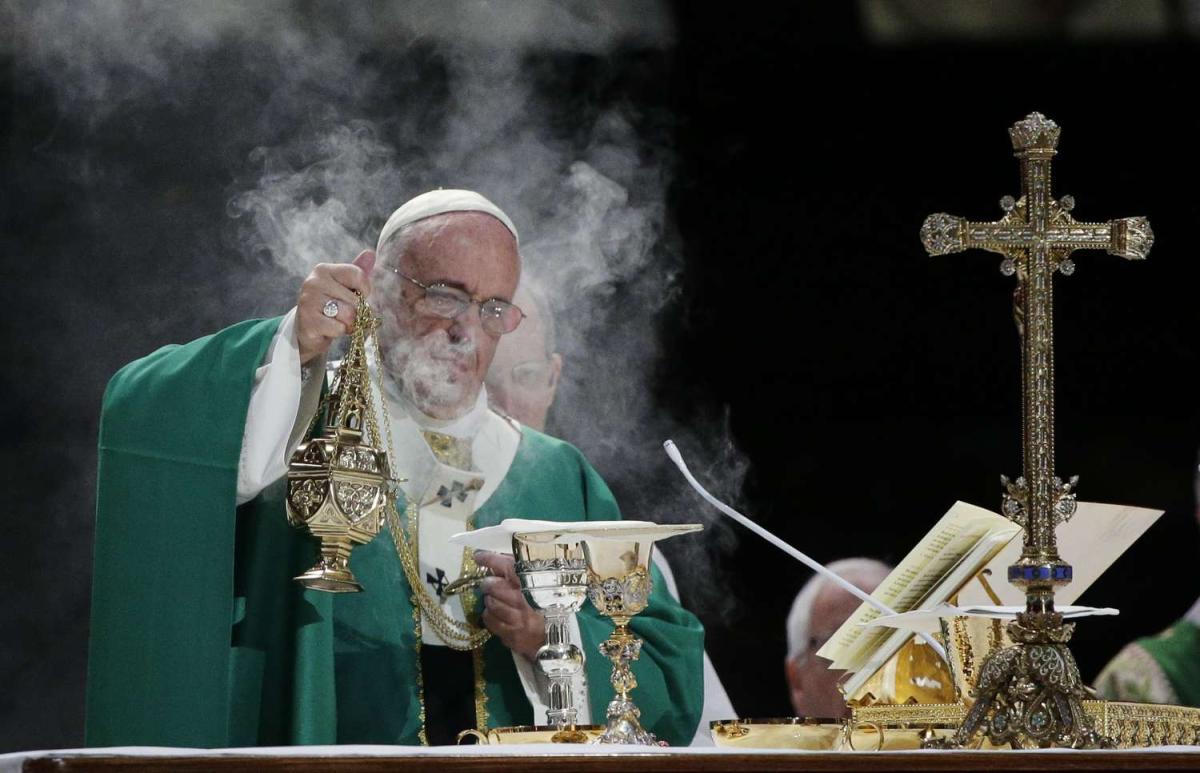After Jesus hung on the cross for six hours and was about to die, he cried out with a loud voice, “My God, my God, why have you forsaken me?” (Mt 27.46/Mk 15.34). When Jesus said that, he was quoting the beginning of Psalm 22 in the Bible’s Old Testament. King David wrote this psalm, and the New Testament often applies portions of it to Jesus’ crucifixion. A good study reference Bible shows this. There are two theological issues which arise concerning this outcry by the crucified, dying Jesus, “My God, my God, why have you forsaken me?”
The first theological issue that arises from this dereliction cry of Jesus is indicated by Bible scholar Colin Brown when he says of it, “From earliest times the cry has been felt to raise problems for Christology.” What problems? Mainly, the post-apostolic, institutional church has always said both God the Father and Jesus are God. In 325 at the Council of Nicea, called the First Ecumenical Council, the Catholic Church officially declared in its Nicene Creed that Jesus was “fully God of fully God.” This means God the Father and Jesus the Son are co-equal and co-eternal. And in 381 at the Council of Constantinople, called the Second Ecumenical Council, the Catholic Church officially declared for the first time what came to be called “the doctrine of the Trinity.” (Many Christians, and not a few scholars, err in thinking that it was established at the Council of Nicea.) This means that God the Father, Jesus the Son, and the Holy Spirit are each a hypostasis in the Greek language, which we in our English language call a “person,” but that does not quite reflect the meaning of hypostasis, which is “substance.” Thus, the Church doctrine of the Trinity in modern terms is that these three persons are one God in essence, and all three persons are co-equal and co-eternal. Thus, the Church says each member of this Trinity is God, yet they do not constitute three Gods.
For twenty-two years—from ages eighteen to forty—I was a Trinitarian Christian just like almost all Christians are. But I believed it because that’s what my church taught me. I didn’t get that from the Bible. For one thing, the word Trinity is not in the Bible. And nearly all distinguished Trinitarian Bible scholars nowadays admit that their doctrine of the Trinity is not in the Bible. Instead, they rightly state that it is a deduction from the Bible. But does this deduction truly reflect what the Bible says on this subject?
One day in either 1979 or 1980, I was reading Jesus’ Olivet Discourse which he taught to his disciples during Passion Week only days before his death. I knew it quite well. When I read Jesus’ statement about not knowing the time of his so-called “second coming,” a light went on inside of me. It was a eureka moment in my life! I believe the Holy Spirit of God was drawing my attention to something in that statement, showing me that I had been taught incorrectly about it.This saying of Jesus reads in the NRSV, “But about that day and/or hour no one knows, neither the angels of/in heaven, nor the Son, but only the Father” (Matthew 24.32/Mark 13.32). Jesus was referring to himself when he said “Son.”
I had been taught both the doctrine of the Trinity and the hypostatic union of Christ, which go together. The latter was decided and declared officially by the Catholic Church in 451 at its Council of Chalcedon, called the Fifth Ecumenical Council. (Each ecumenical council was named by the name of the city in which it was held.) That is where the Church bishops decided about how Jesus could be both man and God. They concluded Jesus had two natures—a human nature and a divine nature. I was taught, as many Trinitarians are, that when we read in the four New Testament gospels about what Jesus said and did, he either said that saying or did that act from the perspective of one of his two natures. In this case, I was taught that Jesus said this about his future return solely from the perspective of his human nature, but in his divine nature he knows everything so that he knew the time of his return.
When I read this saying that day, I said to myself, “That makes Jesus look like a liar. He said he didn’t know the time of his return, but he really did know it because he is God.” I also said to myself, “I will stand on the integrity of Jesus no matter what.” So I also thought, “I have to look into this matter.” This enlightenment caused me to make a very deep study about the identity of Jesus for the next twenty eight years. During this time, I estimate that I read about 1,000 books on the identity of Jesus besides scouring perhaps as many Bible commentaries, looking at what they said about the twenty-something most critical texts on this subject in the Bible.
The result of this massive study was that I wrote a 600-page book about it entitled The Restitution of Jesus Christ. It was published in 2008 under my pseudonym “Servetus the Evangelical.” (See my website servetustheevangelical.com.) It may be the most formidable book to ever biblically challenge the church dogma that Jesus is God while affirming all other major church teachings about Jesus, including his virgin birth, miracles, sinlessness, atoning death, bodily resurrection, heavenly exaltation, and future return to establish his worldwide kingdom of peace.
So, what should we conclude about Jesus saying on the cross, “My God, my God, why have you forsaken me?” In fact, this was not the only time Jesus identified God, whom he often called “my/the Father, as “my God.” The risen Jesus said to Mary Magdalene, “go to my brothers and say to them, ‘I am ascending to my Father and your Father, to my God and your God’” (John 20.17). And according to the book of Revelation, the heavenly-exalted Jesus said “my God” five times in short compass (Revelation 3.2, 12).
Writers of the New Testament also state that the Father is the God of Jesus, yet they never say Jesus is the God of the Father. The texts of these writers which affirm Jesus has a God, who is the Father, are as follows:
- “The God and Father of our Lord Jesus Christ” (Romans 15.6)
- “Blessed be the God and Father of our Lord Jesus Christ” (2 Corinthians 1.3)
- “The God and Father of the Lord Jesus” (2 Corinthians 11.31)
- “Blessed be the God and Father of our Lord Jesus Christ” (Ephesians 1.3)
- “the God of our Lord Jesus Christ, the Father of glory” (Ephesians 1.17)
Due to the doctrine of the Trinity, Jesus calling the Father “my God” raises the question Colin Brown implied—How can Jesus be God and have a God? Why? The Bible repeatedly says God is “one,” starting with the Shema in Deuteronomy 6.4. Jews treat it sort of like a mini-creed. The Prophet Isaiah repeatedly said on the behalf of God, “there is no other God besides me,” and “I am God, and there is no other,” or words to that effect (Isaiah 45.21-22, cf. 45.5-6,18; 47.8, 10). And five times the Old Testament says the God of the Jews is the God of the Messiah (Psalm 22.1; Isaiah 49.4-5; Micah 5.4; cf. Isaiah 61.1, 10 with Luke 4.18-22).
Because of this, all good Jews have believed God is numerically one. And Jesus indicated to a scribe that he also believed God is one (Mark 12.32-34). Then Jesus said to some of his Jewish opponents that they “do not seek the glory that comes from the one who alone is God” (John 5.44). But most of all, Jesus prayed to the Father in the Garden of Gethsemane right before his arrest, saying, “this is eternal life, that they may know you, the only true God, and Jesus Christ whom you have sent” (John 17.3). This I regard as the clearest text in the Bible indicating that Jesus is not God, and it is Jesus who said it.
The second theological issue which arises in Jesus’ dereliction cry on the cross is the second part of this saying—“why have you forsaken me.” I was taught, as most Christians are, that this indicated when Jesus hung on the cross, bearing our sins, God the Father, because of his holiness, could not associate himself with sin and therefore had to abandon Jesus at that time, that is, forsake him. After many years I came to believe that also is an error.
The Bible says God does not forsake his people who live godly. King David also wrote Psalm 55. In it he says, “Cast your burden on the lord, and he will sustain you, he will never permit the righteous to be moved” (Psalm 55.22). Sustaining is the opposite of forsaking. And Isaiah says on behalf of God, “Listen to me, O house of Jacob, all the remnant of the house of Israel, who have been borne by me from your birth, carried from the womb; even to your old age I am he, even when you turn gray I will carry you. I have made, and I will bear; I will carry and will save” (Isaiah 46.3-4).
Then, why did the Father forsake Jesus while he hung upon the cross? Well, is that what really happened? Some Jewish rabbis claim that during antiquity Jews sometimes quoted the first sentence of a biblical psalm as a reference to the entire psalm. If this is true, then we should read the remainder of Psalm 22 to perhaps gain insight into what really happened when Jesus was on the cross.
David says of God in the next sentence in Psalm 22.1, “Why are you so far from helping me, from the words of my groaning?” He later says, “On you I was cast from my birth, and since my mother bore you have been my God. Do not be far from me, for trouble is near and there is no one to help” (vv. 10-11). That certainly applies to Jesus as well. No biblical prophecy applies to the torture Jesus endured from his crucifixion like what we read next in this psalm. Thus, David was writing about how he felt at the time, but this graphic description applies even more to the crucified Jesus. David says, “I am poured out like water, and all my bones are out of joint; my heart is like wax; it is melted within my breast; my mouth is dried up like a potsherd, and my tongue sticks to my jaws; you lay me in the dust of death. For dogs are all around me; a company of evildoers encircles me. My hands and feet have shriveled; I can count all my bones. They stare and gloat over me; they divide my clothes among themselves, and for my clothing they cast lots. But you, O Lord, do not be far away! O my help, come quickly to my aid!” (vv. 14-19).
So much of this above quote depicts crucified victims. They had dry mouth and suffered dehydration. Medical doctors often affirm the literalness of this heart description. Shoulder bones and ribs protruded due to this method of execution. Dogs typically surrounded the crucified, snapping at their heels. The soldiers cast lots for Jesus’ garment.
Then David says about God, “he did not despise or abhor the affliction of the afflicted” (Psalm 22.24). What! That contrasts with forsaking someone. It seems the opposite of the traditional teaching that the Father abandoned Jesus on the cross because he could not associate with Jesus bearing sins. Then David says of God, “he did not hide his face from me, but heard when I cried to him.” The words, “hide his face,” are a Semitic idiom referring to abandonment. David clearly says God did not turn away and forsake him. Since this psalm also applies to Jesus in its entirety, God did not forsake Jesus, either, when he hung on the cross.
That corresponds with what Jesus had taught his disciples. He said of the Father, “the one who sent me is with me; he has not left me alone, for I always do what is pleasing to him” (John 8.29). The same must have been true when Jesus hung on the cross. Moreover, Jesus had said to his disciples right after the Last Supper, only about twelve hours before he was crucified, “you will be scattered, each one to his home, and you will leave me alone. Yet I am not alone because the Father is with me” (16.32).
Then, why did David and Jesus say, “My God, my God, why have you forsaken me?” That was how they felt, not how it really was. In fact, it was just the opposite. God was there, bearing their pain with them.
Brothers and sisters in Christ, have you ever felt God has abandoned you even though you have done nothing wrong? Most of us have at some time or other in our lives. It is a typical, occasional feeling for even the people of God. But that is not how it really is. God is there, bearing our burden with us. For Isaiah says of Israel and God, “In all their affliction He was afflicted” (Isaiah 63.9 NASB). And David in another psalm says, “Blessed be the Lord, who daily bears us up” (Psalm 68.19). In such times of distress when we feel God is not there, let us recall these promises of our loving, heavenly Father.
…………….
To see a list of titles of 130+ posts (2-3 pages) that are about Jesus not being God in the Bible, with a few about God not being a Trinity, at Kermit Zarley Blog click “Chistology” in the header bar. Most are condensations of my book, The Restitution of Jesus Christ. See my website servetustheevangelical.com, which is all about this book, with reviews, etc. Learn about my books and purchase them at kermitzarley.com. I was a Trinitarian for 22 years before reading myself out of it in the Bible.















